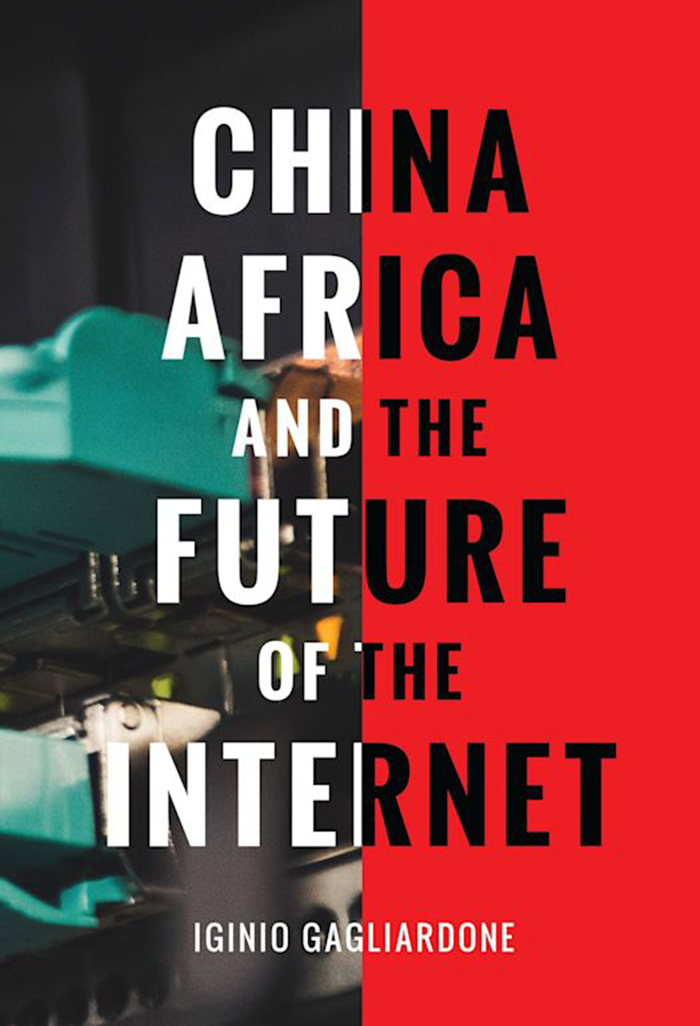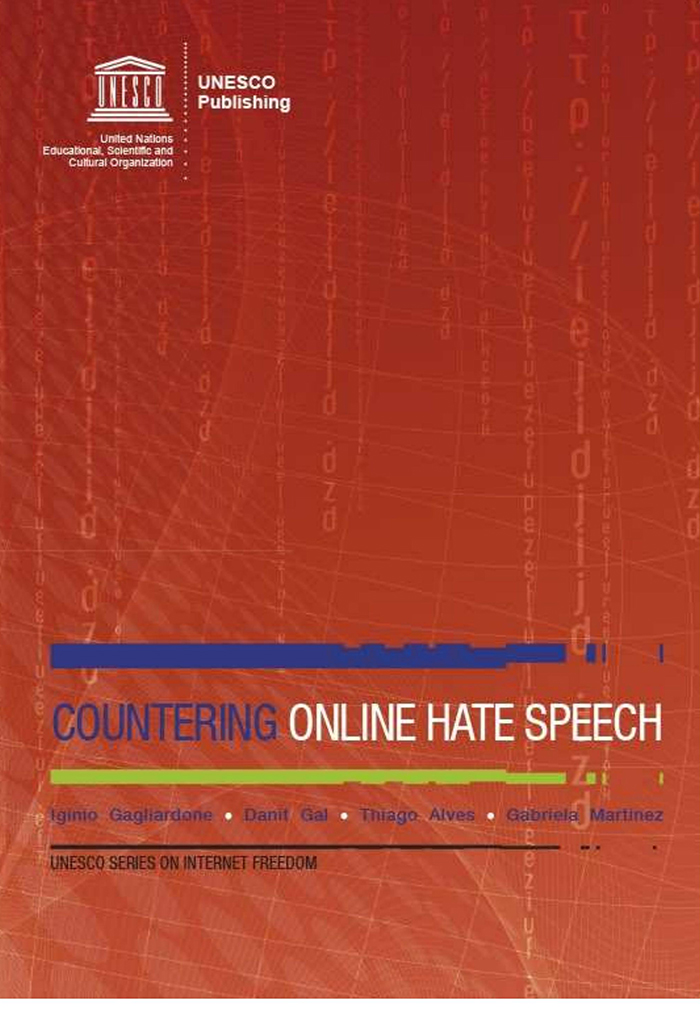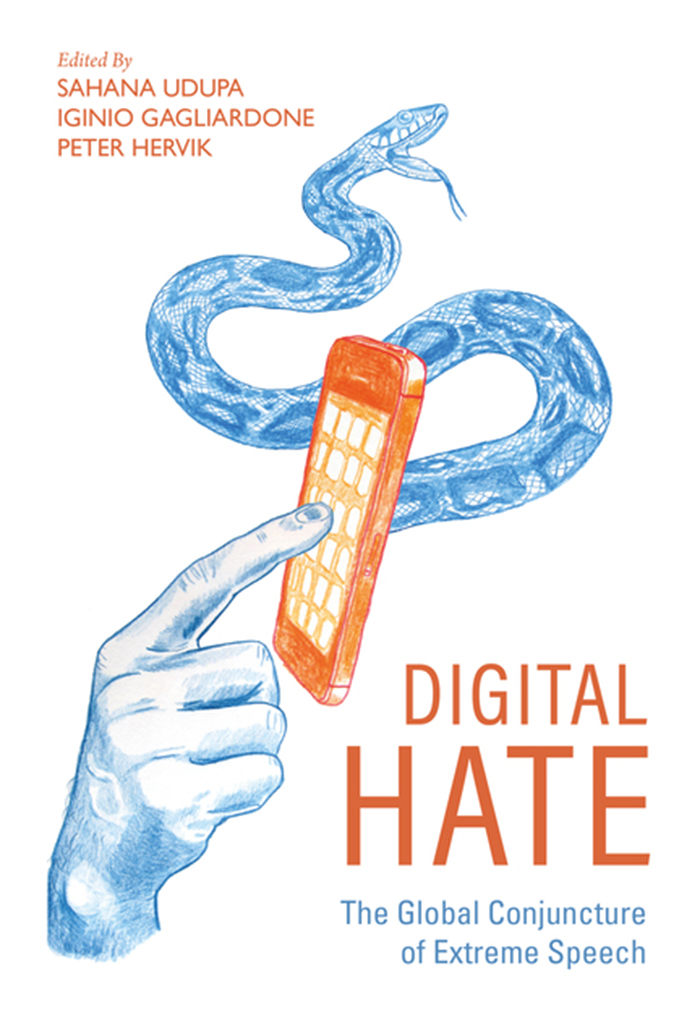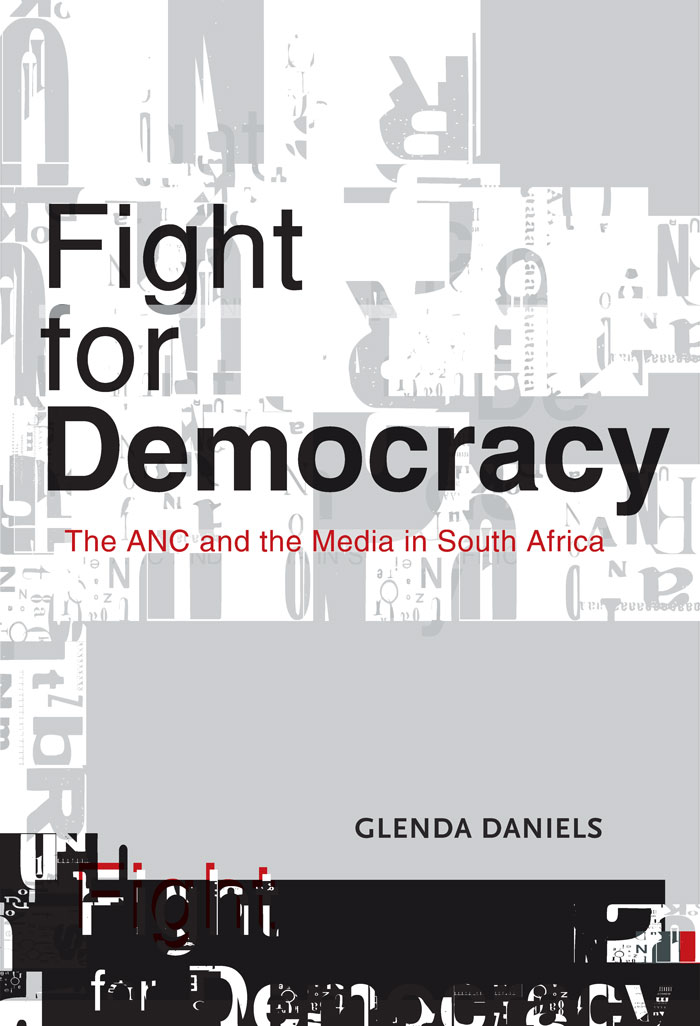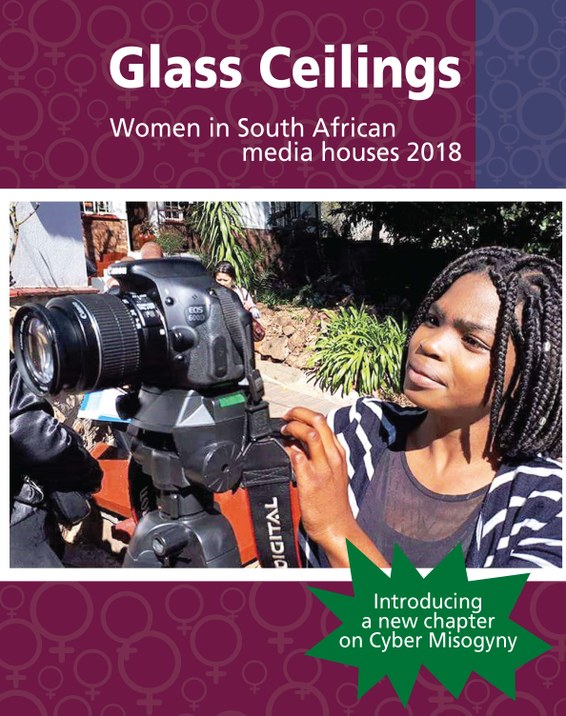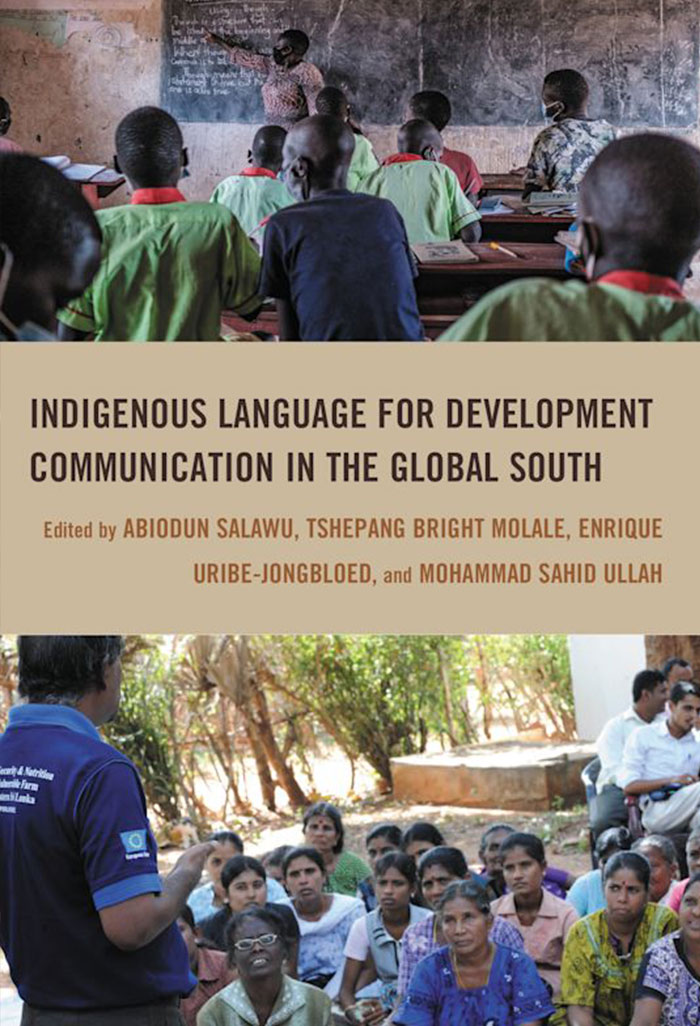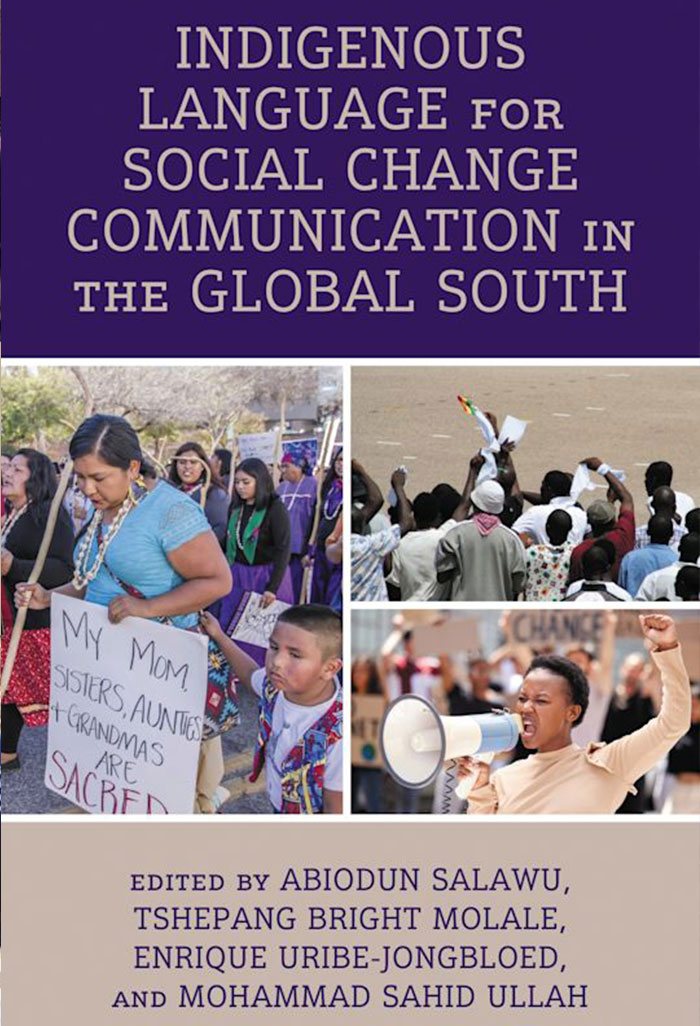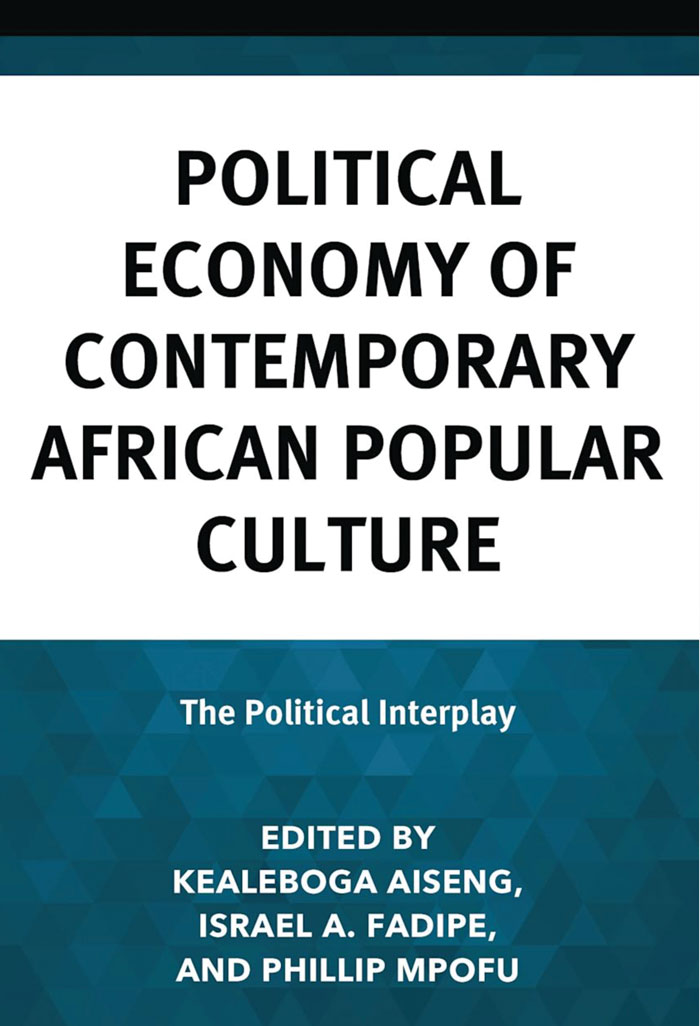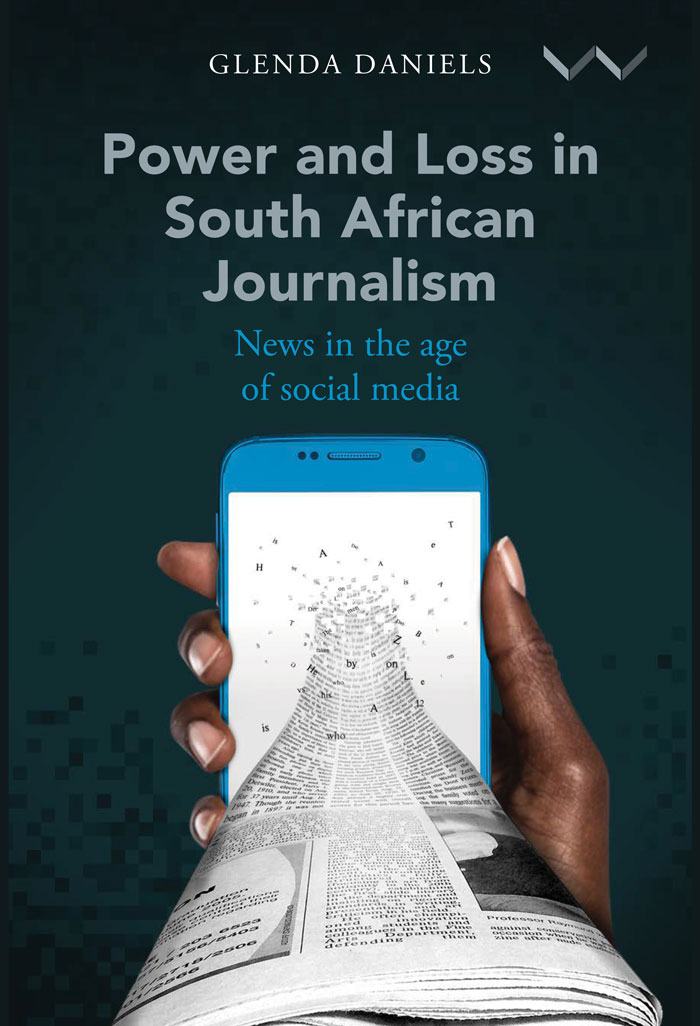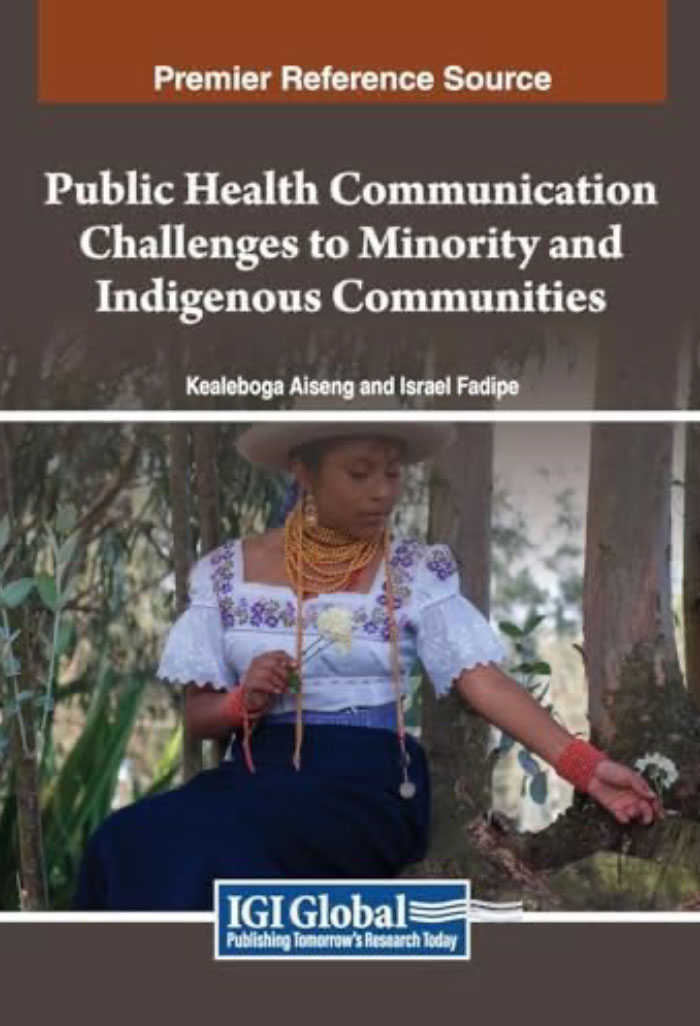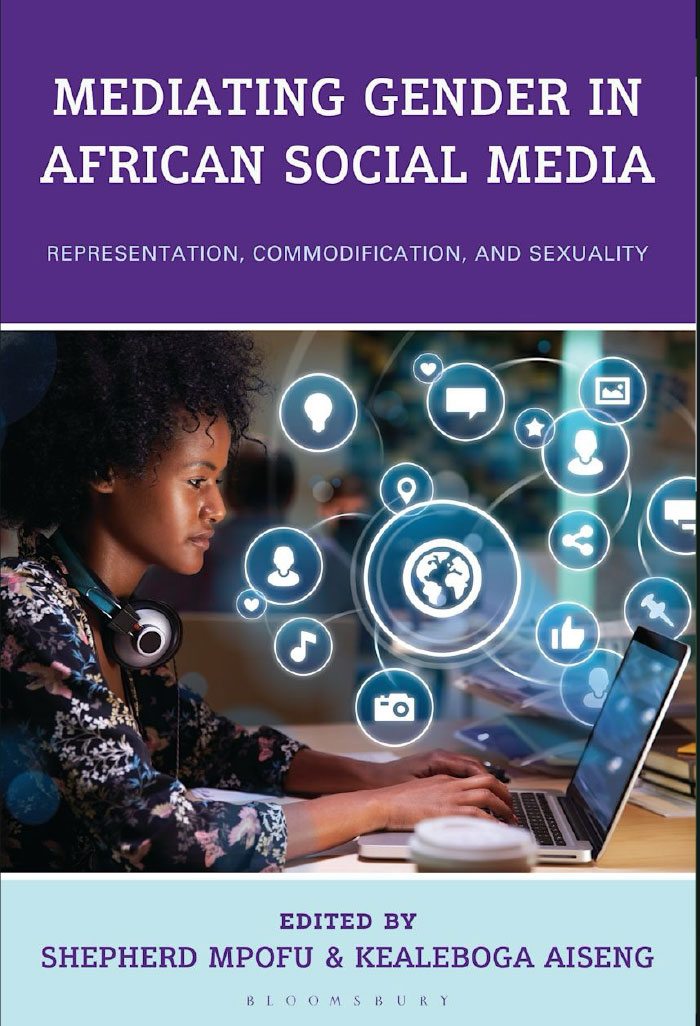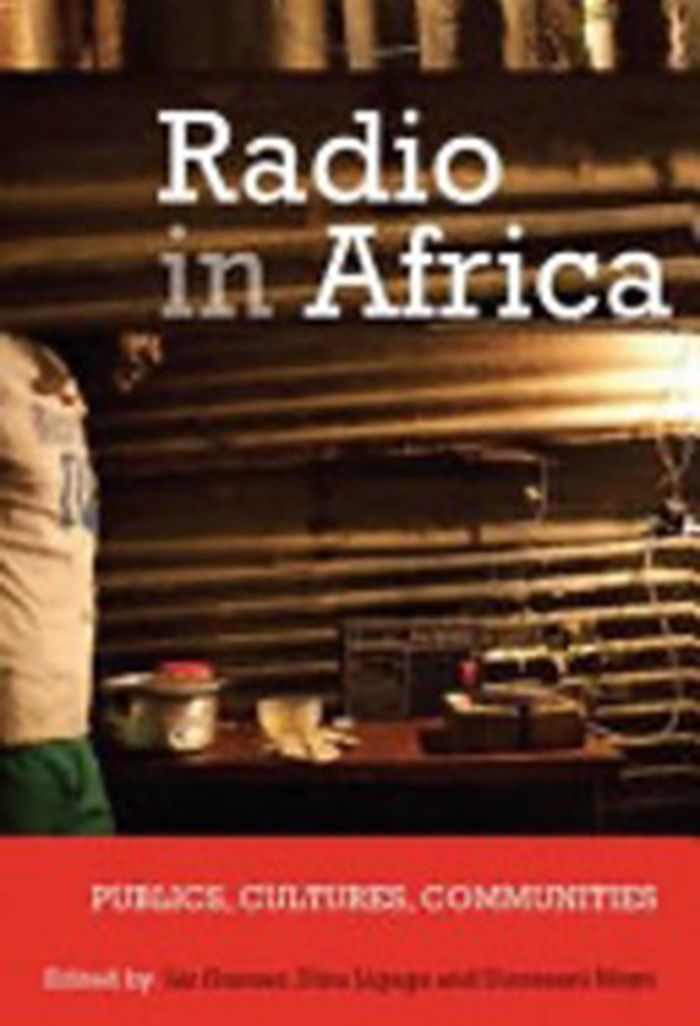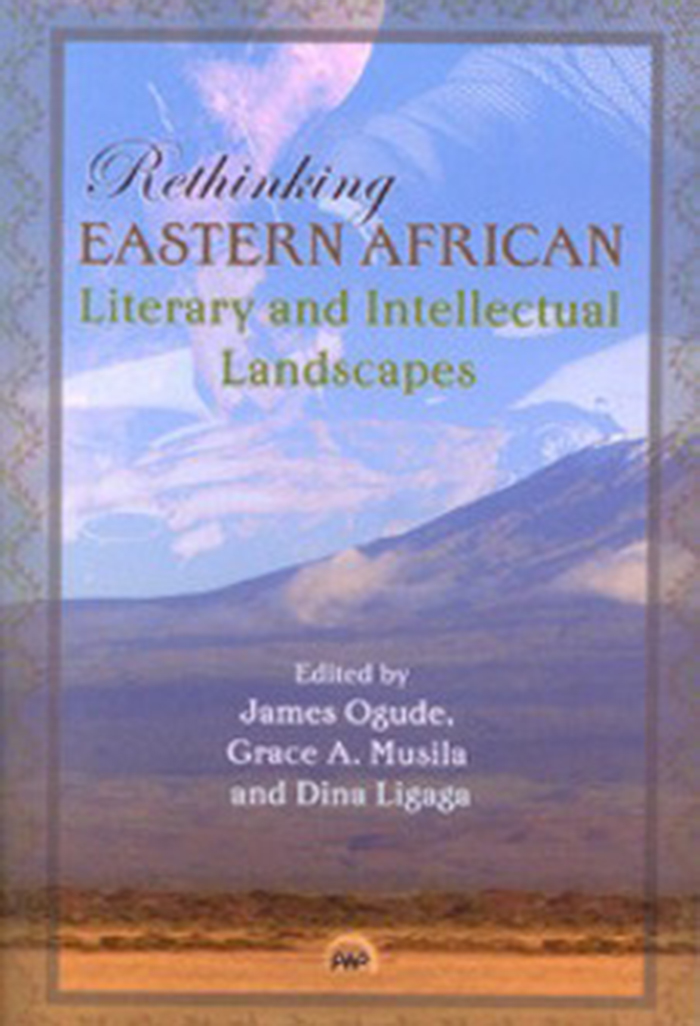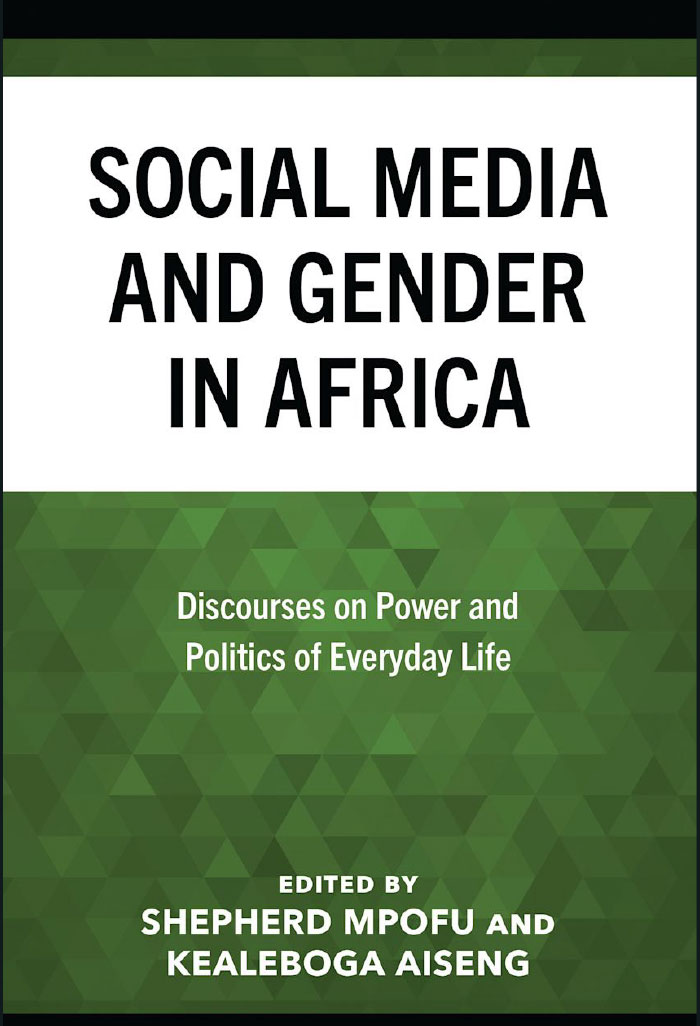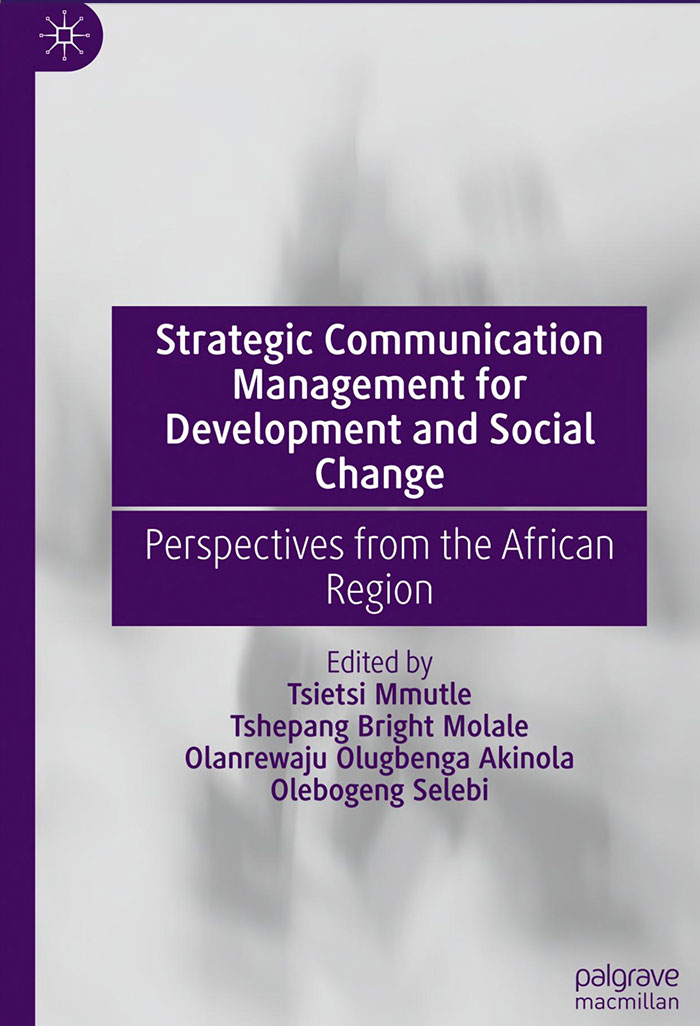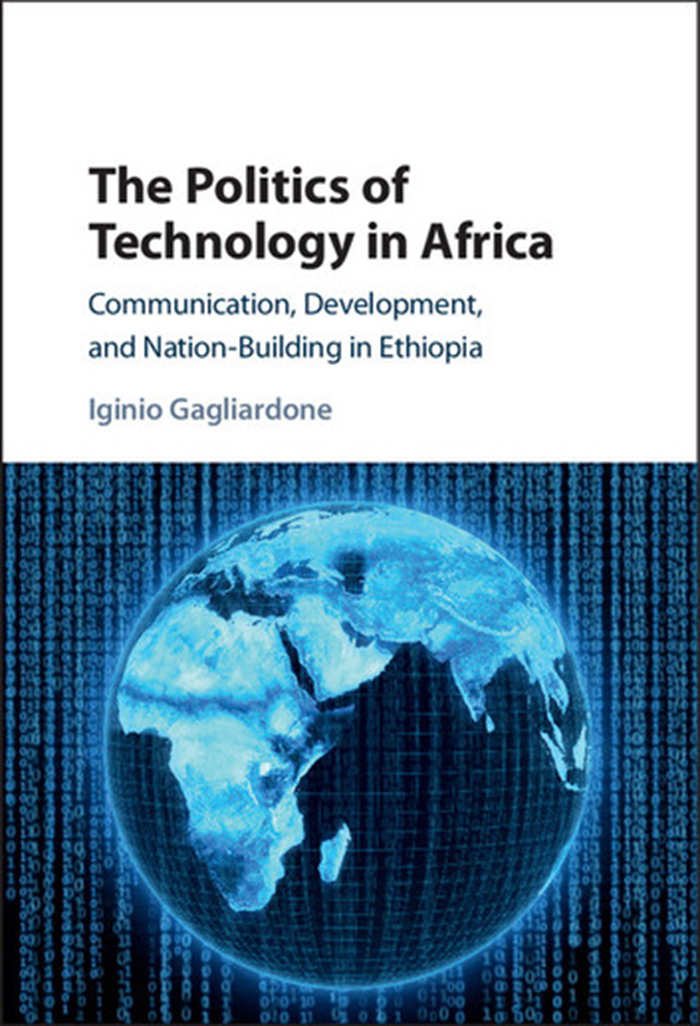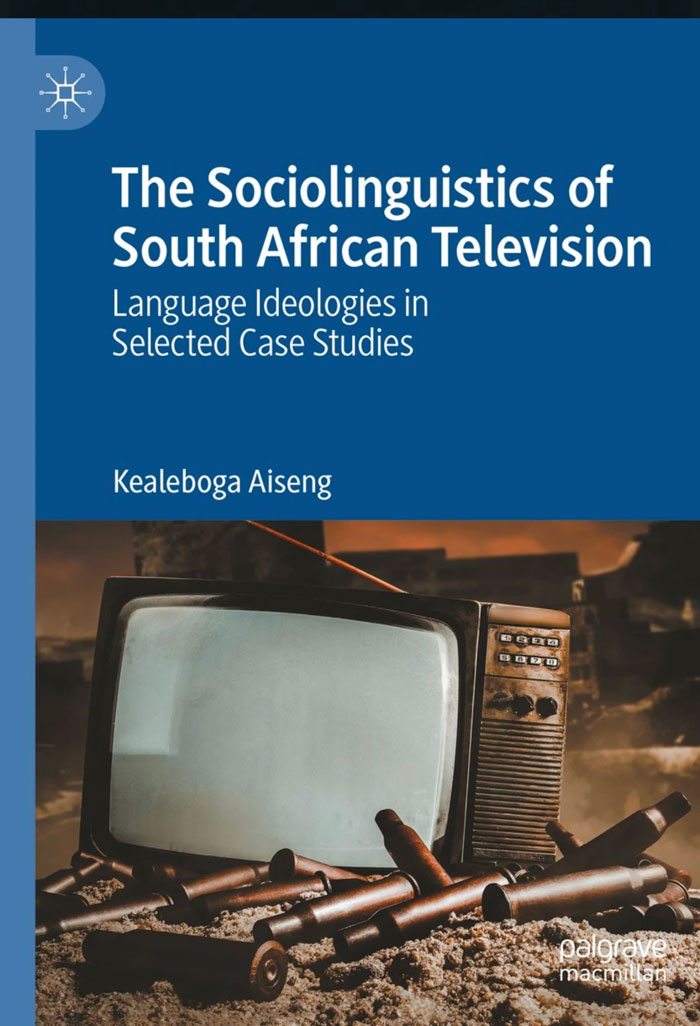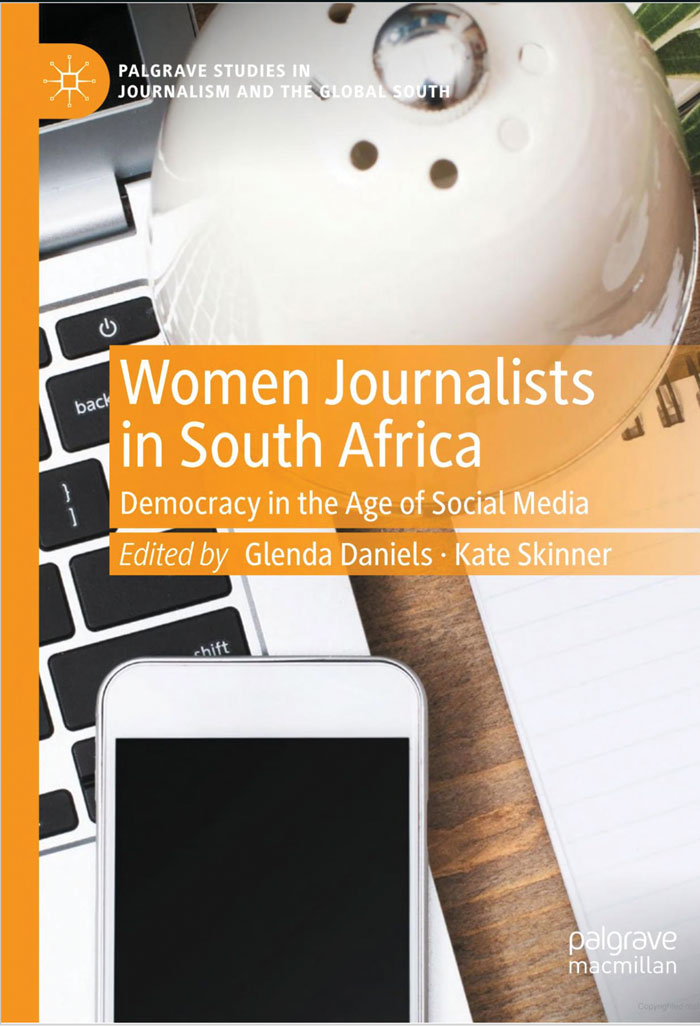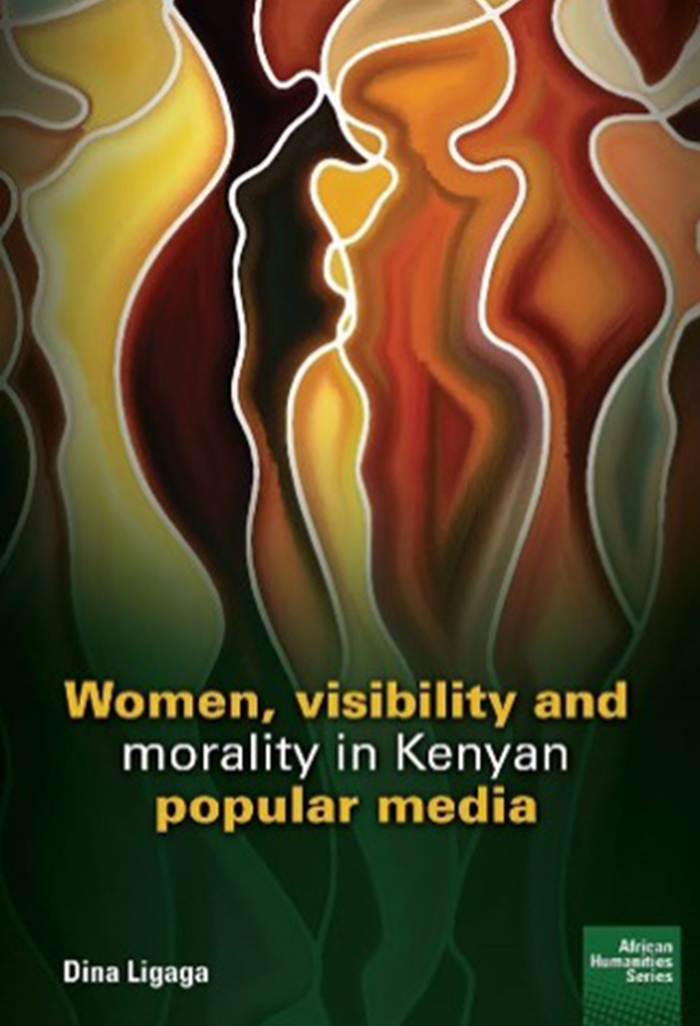Books
Books written and edited by members of the Media Studies team.
Books written and edited by members of the Media Studies team.
Glenda Daniels, Wits University Press (2012)
Fight for Democracy is a penetrating and critical scrutiny of the ANC's treatment of the print media since the inception of democracy in 1994. In this book, Glenda Daniels does not hide behind a veil of detachment, but instead makes a passionate argument for the view that newspapers and journalists play a significant role in the deepening of democratic principles. Daniels' study goes to the heart of current debates and asks why the ANC, given its stated commitment to the democratic objectives of the Constitution, is so ambivalent about the freedom of the media. What would be the consequences of a revised media policy on democracy in South Africa, and at what cost to freedom of expression? Daniels examines the pattern of paranoia that has crept into public discourse about the media and the ANC, and the conflictual relationship between the two. She argues that the ANC's understanding of democracy, transformation and development entails (amongst other things) the rallying of the nation behind its leadership as the premier liberation movement and democratically elected representative of the majority while morally coercing black journalists and professionals into loyalty. Daniels challenges the dominant ANC view that journalists are against transformation and that they take instruction from the owners of the media houses; in short that they are 'enemies of the people'. Fight for Democracy is a timely publication in the context of the impending clampdown on media freedom and the twin threats of the Protection of State Information Bill (Secrecy Bill) and the Media Appeals Tribunal, both of which signify closures in South Africa's democracy. Written in a polemical style, this is a work of activism that will be essential reading for the informed public as well as those working in Journalism and Media Studies. It should interest all democrats, members of political organisations as well as academics and Right2Know activists, locally and internationally.
The "Glass Ceilings: Women in South African media houses 2018" book revealed that while progress had been made in the gender and race composition of media since the first study 12 years prior, women, particularly black women, were still underrepresented in decision-making roles, a widening gender pay gap existed, and patriarchal norms contributed to issues like sexism and cyber misogyny.
Step into the vibrant world of African popular culture with this trailblazing volume by K. Aiseng, I. Fadipe, and P. Mpofu (2024, Lexington Books). This book critically examines the political, economic, and historical forces that shape African media industries, uncovering the complex interplay between cultural production, power, and global visibility. Through interdisciplinary analysis and case studies across music, television, film, and digital platforms, the authors offer a compelling framework for understanding Africa’s cultural influence both within the continent and on the global stage. Engaging and deeply analytical, this book is an essential resource for scholars, students, and practitioners in African studies, media and communication, cultural policy, and the political economy of media. It provides a rich, decolonial perspective on how African popular culture continues to negotiate identity, resistance, and innovation in a rapidly changing world.
This book analyses the crisis of journalism in contemporary South Africa at a period when the media and their role are frequently at the centre of public debate. The transition to digital news has been messy and unpredictable.
This book offers a groundbreaking exploration of how language operates as both a tool and a terrain in the construction of cultural identity and meaning in South African media. Through richly detailed case studies, the book delves into the sociolinguistic dynamics that shape television content, unpacking how language ideologies—both visible and subtle—influence representation, access, and audience engagement. Bridging media studies, sociolinguistics, and cultural studies, Aiseng’s work interrogates the intersections of language, power, and identity in a multilingual society still grappling with the legacies of colonialism and apartheid. This timely and insightful contribution is indispensable for scholars, students, and readers interested in African media, linguistic justice, and the evolving narratives of South African popular culture.
This edited collection examines women journalists’ experiences and obstacles in South Africa’s (SA) democracy. They exercise power, and add a vital diversity, but they are routinely harassed in the online social media space of big tech companies such as Twitter and Facebook by populist and corrupt politicians and their supporters. Using SA as the case study, this book examines attempts to curb women journalists’ freedom combining theory and first-hand accounts. The target audience for the book includes scholars of political philosophy, gender, media, communications, NGOs, media freedom activists and journalists.
Delve into the dynamic interplay of gender, politics, and digital culture in Social Media and Gender in Africa by S. Mpofu and K. Aiseng (2024, Lexington Books). This pioneering work investigates how social media platforms are reshaping gender relations, amplifying political voices, and redefining the boundaries of activism and resistance across African societies. Through critical analysis of case studies and online discourse, the authors reveal how digital spaces serve as contested arenas where gendered identities are performed, challenged, and politicized in everyday life.
This book is an essential resource for students, scholars, and practitioners interested in gender studies, digital sociology, African media, and contemporary social movements.
In this timely and insightful volume, Public Health Communication in Minority and Indigenous Communities (Aiseng & Fadipe, 2024, IGI Global), the authors confront the critical challenges that hinder effective health messaging in historically marginalized populations.
Drawing on interdisciplinary research and real-world case studies, the book exposes the structural, cultural, and linguistic barriers that compromise public health outcomes in minority and indigenous contexts. Aiseng and Fadipe not only diagnose the issues but also provide actionable frameworks and strategies for designing inclusive, community-driven communication approaches. Essential reading for public health professionals, policymakers, researchers, and advocates, this work equips readers with the tools to foster more equitable and responsive health systems in diverse societies.
Scheduled for release by Bloomsbury Academic in 2025, this groundbreaking book by S. Mpofu and K. Aiseng critically examines how African social media platforms construct, commodify, and contest gender and sexuality. With a focus on digital representation and the politics of visibility, the authors unpack the subtle and overt ways in which online spaces become sites of both empowerment and exploitation. Blending theoretical insight with rich empirical analysis, this work offers fresh perspectives on the intersections of gender, identity, and power within African digital ecosystems.
A vital contribution to the fields of media studies, gender studies, and digital cultures in the Global South, it is an indispensable resource for scholars, researchers, and students engaging with contemporary African society through a critical lens.
This book draws insights from scholars across the African continent by unravelling the complementary nature of scholarship between the two fields, through the lens of prevailing governance and sustainability challenges facing African countries, today. This edited volume covers issues that have adversely affected the achievement of goals related to humanitarian upliftment, development and social change for all African nations. Consequently, citizen participation, which lies at the heart of these challenges when considering the question of sustainable governance and policy development for social change in an African context is addressed. To this end, a reflection is also made on various case studies that exist where local citizens do not inform sustainable development programmes, while the promotion of bottom-up development and social change is largely replaced by top-down instrumental action approaches and hemispheric communication instead of strategic communication.
Indigenous Language for Development Communication in the Global South brings together voices from the margins in underrepresented regions of the Global South, within the context of scholarship focusing on indigenous languages and development communication. Contributors present cases as a starting point for further research and discussions about indigenous language and development communication in Latin America, Africa, and Asia. Scholars of communication, sociology, linguistics, and development studies will find this book of particular interest.
Indigenous Language for Social Change Communication in the Global South brings together voices from the margins to engage in dialogue about common social change issues in Latin America, Africa, and Asia. This book argues that resistance and social movements, expressed in music and songs and exchanged via radio, remain fundamental to ensure that the linguistic and cultural diversity of the world progresses despite colonizing pressures. Contributors present cases that explore how indigenous communities use mediums such as the radio to help support their language, identity, and expand their own social change. Highlighting the centrality of music in the development of political discussions and language as a central part of collective identity, contributors analyze how these mediums function as both a vessel and a link for information and cultural cohesion of those engaging in social change. Scholars of communication, sociology, and development studies will find this book of particular interest.
The euphoria that has accompanied the birth and expansion of the internet as a "liberation technology" is increasingly eclipsed by an explosion of vitriolic language on a global scale. Digital Hate: The Global Conjuncture of Extreme Speech provides the first distinctly global and interdisciplinary perspective on hateful language online. Moving beyond Euro-American allegations of "fake news," contributors draw attention to local idioms and practices and explore the profound implications for how community is imagined, enacted, and brutally enforced around the world. With a cross-cultural framework nuanced by ethnography and field-based research, the volume investigates a wide range of cases—from anti-immigrant memes targeted at Bolivians in Chile to trolls serving the ruling AK Party in Turkey—to ask how the potential of extreme speech to talk back to authorities has come under attack by diverse forms of digital hate cultures. Offering a much-needed global perspective on the "dark side" of the internet, Digital Hate is a timely and critical look at the raging debates around online media's failed promises.
China is transforming Africa's information space. It is assisting African broadcasters with extensive loans, training and exchange programmes and has set up its own media operations on the continent in the form of CCTV Africa. In the telecommunications sector, China is helping African governments to expand access to the internet and mobile phones, with rapid and large-scale success. While Western countries have ambiguously linked the need to fight security threats with restrictions of the information space, China has been vocal in asserting the need to control communication to ensure stability and development.
Featuring a wealth of interviews with a variety of actors – from Chinese and African journalists in Chinese media to Chinese workers for major telecommunication companies – this highly original book demonstrates how China is both contributing to the 'Africa rising' narrative while exploiting the weaknesses of Western approaches to Africa, which remain trapped between an emphasis on stability and service delivery, on the one hand, and the desire to advocate human rights and freedom of expression on the other. Arguing no state can be understood without attention to its information structure, the book provides the first assessment of China's new model for the media strategies of developing states, and the consequences of policing Africa's information space for geopolitics, security and citizenship.
Information and communication technologies (ICTs) have been hailed for their transformative potential. Yet, the fascination for the possibilities of promoting more inclusive forms of development in the information age have obfuscated the reality of the complex negotiations among political and economic actors who are seeking to use technology in their competition for power. Building on over ten years of research in Ethiopia, Iginio Gagliardone investigates the relationship between politics, development, and technological adoption in Africa's second most populous country and its largest recipient of development aid. The emphasis the book places on the 'technopolitics' of ICTs, and on their ability to embody and enact political goals, offers a strong and empirically grounded counter-argument to prevalent approaches to the study of technology and development that can be applied to other cases in Africa and beyond. The book explores elements of history, international relations and African studies to present a balanced examination that is accessible to readers from all backgrounds and it develops theories that can be adapted to study technological innovation and development in Africa and beyond
Women, visibility and morality in Kenyan popular media explores familiar constructions of femininity to assess ways in which it circulates in discourse, both stereotypically and otherwise. It assesses the meanings of such discourses and their articulations in various public platforms in Kenya. The book draws together theoretical questions on pre-convened scripts that contain or condition how women can circulate in public. The book asks questions about particular interpretations of women’s bodies that are considered transgressive or unruly and why these bodies become significant symbolic sites for the generation of knowledge on morality and sexuality. The book also poses questions about genre and representations of femininity. The assertion made is that for knowledges of femininity to circulate effectively, they must be melodramatic, spectacular and scandalous. Ultimately, the book asks how such a theorisation of popular modes of representation enable a better understanding of the connections between gender, sexuality and violence in Kenya.
Published as part of UNESCO’s Internet Freedom series, the study authored by Iginio Gagliardone (with Danit Gal, Thiago Alves Pinto, and Gabriela Martinez) offers a comprehensive, global synthesis of how hate speech emerges and spreads online and analyses the international, regional, and national legal frameworks meant to address it. Rather than emphasising regulation alone, it places special focus on non‑regulatory, social mechanisms—such as monitoring and early-warning systems, civil society coalitions, platform accountability by social media companies and ISPs, and media literacy and digital citizenship campaigns—to counteract the production, dissemination, and effects of hateful messaging. The study organises its findings around four key areas of tension—definition, jurisdiction, comprehension, and intervention—and concludes with tailored recommendations for a broad range of stakeholders to help mitigate hate speech while safeguarding freedom of expression.
Edited by James Ogude, Grace A. Musila and Dina Ligaga
This book brings together diverse voices, genres and intellectual trajectories in an attempt to reflect on the state of production of, and engagement with, Eastern African literary cultures. The book re-visits established intellectual debates and canonical texts, while simultaneously offering a forceful engagement with popular arts and performances; particularly the manner in which genres such as drama, music and new media offer important insights into everyday life in the region. At the core of these essays is Eastern Africa’s engagement with the legacy of colonial modernity, which remains a major influence on the region’s artists. The book also speaks to the rich and complex sources of Eastern African cultures and how these continue to be negotiated through multiple currents, both local and international. The essays traverse layered cultural landscapes and intellectual traditions – pointing to how discourses rooted in past traditions and born out of Eastern Africa’s search for aesthetic affirmation of the self, continue to be entangled with its contemporary poetics, albeit in new ways. Ultimately, this collection of essays points to how Eastern African cultural productions could offer a useful template for crystallizing the regions elusive uniqueness, while acknowledging the heterogeneity and tensions that undermine any attempts to fix it as a stable cultural landscape.
Edited by Liz Gunner, Dina Ligaga and Dumisani Moyo
Radio is 'Africa's medium', with an ability to transcend barriers to access, facilitate political debate and shape identities. Contributors investigate the multiple roles of radio in the lives of African listeners across the continent. Some essays turn to the history of radio and its part in culture and politics. Others show how radio throws up new tensions, yet endorses social innovation and the making of new publics. A number of contributors look at radio's current role in creating listening communities that radically shift the nature of the public sphere. Yet others cover radio's central role in the emergence of informed publics in fragile national spaces, or in failed states. The book also highlights radio's links to new media, its role in resistance to oppressive regimes, and points in several cases to the importance of African languages in building modern communities that embrace both local and global knowledge.

